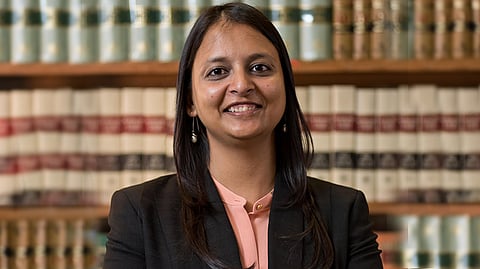
- Latest Legal News
- News
- Dealstreet
- Viewpoint
- Columns
- Interviews
- Law School
- Legal Jobs
- हिंदी
- ಕನ್ನಡ

The Supreme Court in Voestalpine Schienen GmbH v. Delhi Metro Rail Corporation Ltd., (2017) 4 SCC 665, dealt with the question whether a panel of arbitrators maintained by one of the parties, as per the arbitration clause, is valid under Section 12(5) of the Arbitration and Conciliation Act, 1996 (the Act).
In this case, DMRC (employer) awarded a contract to Voestalpine (contractor) for supply of rails. Certain disputes arose between the parties and Voestalpine invoked the arbitration clause.
The arbitration clause prescribed a particular procedure for constitution of the arbitral tribunal. It specified that DMRC will forward names of five persons from the panel maintained by DMRC and Voestalpine will have to choose its nominee arbitrator from the said panel.
DMRC furnished a panel of 5 names to Voestalpine. Voestalpine did not accept this as the panel consisted of serving or retired engineers either of DMRC or of Government Department or Public Sector Undertakings. It argued that the panel is contrary to Section 12(5) of the Act, read with Entry 1 of Seventh Schedule to the Act. Voestalpine accordingly filed an application for appointment of an independent arbitrator/tribunal.
The question before the court was whether the panel of 5 names forwarded by DMRC violates Section 12 (5) of the Act. During the course of proceedings, DMRC forwarded to Voestalpine the names of the entire panel of arbitrators maintained by it, i.e., 31 names.
Findings
Entry 1 of Seventh Schedule provides that where the arbitrator is an employee, consultant, advisor or has any other past or present business relationship with the party, he would not act as an arbitrator. This entry does not make persons who have worked in the railways under the Central Government or Central Public Works Department or public sector undertakings ineligible, as they cannot be treated as employee or consultant or advisor of the Respondent-DMRC.
The panel of 31 names subsequently given by DMRC gives a very wide choice to Voestalpine to nominate its arbitrator. However, a panel of 5 names gives a very limited choice to the contractor and does not give a free choice to nominate a person out of the complete panel maintained by the employer.
The discretion with an employer to choose all 5 names from its larger panel gives rise to a suspicion that the employer might pick its favorites. Therefore, the court held that the contractor shall be given the choice of choosing a nominee from the complete panel.
The court also directed that the panel should be broad based. In addition to comprising of serving or retired engineers of government departments and public sector undertakings, it should also include engineers, judges and lawyers.
After Voestalpine, a bench of 3 judges of the Supreme Court in Central Organisation for Railway Electrification v. ECI-SPIC-SMO-MCML (JV), (2019) SCC Online SC 1635, decided on 17 December 2019, held that a panel of 4 names of arbitrators proposed by the employer gives a wide choice to the contractor. There is no reasoning given by the court for arriving at this finding, especially in light of the law laid down in Voestalpine.
Analysis
The court in Voestalpine proceeds on the premise that a panel of 5 names gives a limited choice to the contractor to choose its nominee and there is also a lurking suspicion of the employer stacking its 5 favorites on the panel.
This begs a larger question. What is the way to ascertain that the complete panel of x persons maintained by an employer is not all of its favorites? Will the courts scrutinize the selection process/mechanism for employers/bodies of the persons on their panel, to ensure that it’s a transparent selection process? Should the process of selection be right, if the panel has to be right? Such a panel is formed unilaterally by one party, after the dispute has arisen. The party then has every opportunity of constituting a favourable panel. Will this meet the test of equality in appointment of arbitrator?
These decisions do not provide any guidance on what is a good number of persons on a panel for it to not be struck down. In Voestalpine, a number of 5 was found inadequate and a number of 31 was found adequate. In SMS Limited v. Rail Vikas Nagar Limited, (2020) SCC Online Del 77, decided on 14 January 2020, following Voestalpine, Delhi High Court found that a panel of 31 names, out of which only 7/8 were officers who were working elsewhere than in railways, did not meet the test of a neutral broad based panel. However, the larger bench decision in Central Organisation found a panel of 4 names as a wide choice to the contractor.
In many contracts with government and public sector undertakings, the arbitration clause provides for the contractor to choose a name from the panel of names given by the employer. It would be helpful to have some objective guidance on the minimum number of names which must be on the panel for it to be valid.
About the Author: Renu Gupta practices before the Delhi High Court and other courts and tribunals in Delhi.
Members of the Nani Palkivala Arbitration Arbitration Centre (NPAC) write a weekly column for Bar & Bench analyzing the latest developments on the law of arbitration.